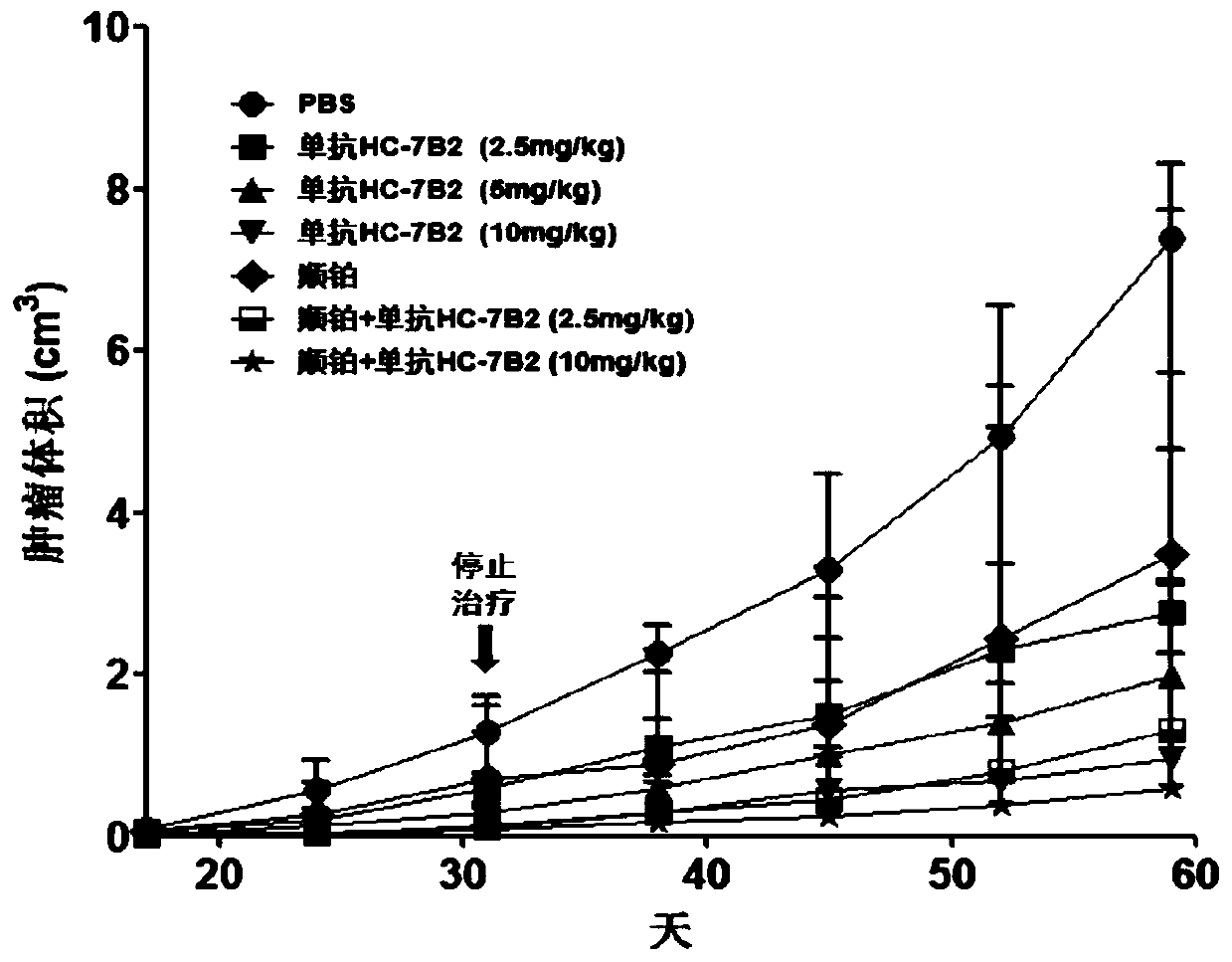A monoclonal antibody against human liver cancer stem cells
A monoclonal antibody and liver cancer stem cell technology, which is applied in the direction of antibodies, anti-animal/human immunoglobulins, anti-tumor drugs, etc., can solve the problems of recurrence and metastasis of tumor patients, and achieve the purpose of inhibiting the growth of human liver cancer transplanted tumors in nude mice, inhibitory effect
- Summary
- Abstract
- Description
- Claims
- Application Information
AI Technical Summary
Problems solved by technology
Method used
Image
Examples
Embodiment 1
[0028] Example 1 Preparation of mouse monoclonal antibody against human liver cancer stem cells
[0029]A new method of primary culture combined with transient subculture was used to isolate a continuous passage cell line that can produce liver cancer stem cells from human liver cancer tissue, and to establish an in vitro serum-free suspension culture technology that can effectively enrich liver cancer stem cells. The liver cancer stem cells obtained were fixed with paraformaldehyde, and Balb / c mice were immunized until the titer of anti-human liver cancer stem cells in the immunized mouse serum reached 1:50,000, and the mouse spleen cells were fused with mouse myeloma cells SP2 / 0 form hybridomas. The hybridoma clones were prepared by the methylcellulose plate method, and after the clones grew, they were picked and cultured in 96-well plates. The culture supernatant of each hybridoma clone containing the monoclonal antibody secreted by this clone was collected from the 96-wel...
Embodiment 2
[0030] Example 2 Screening of mouse monoclonal antibodies that specifically recognize human liver cancer stem cell membrane surface antigens
[0031] MHCC97L spherical cells cultured in serum-free suspension were blown gently into single cells, inoculated at 2000 / well in 96-well plates, cultured in serum-free medium for 24 hours, washed with PBS containing 1% BSA, and placed in each well Add 100ul of the culture supernatant of a hybridoma clone and incubate at room temperature for 2 hours; after washing five times with 1% BSA in PBS, add biotin-labeled secondary antibody and react at room temperature for 30 minutes; wash again with 1% BSA in PBS for five times and label with Cy3 Avidin was reacted at room temperature for 30 minutes; after washing five times with 1% BSA in PBS, the reaction of the hybridoma monoclonal antibody supernatant in the monoclonal antibody library with liver cancer stem cells was judged by fluorescence microscopy, and mouse monoclonal antibodies capable...
Embodiment 3
[0032] Example 3 Identification of the effect of the monoclonal antibody secreted by the hybridoma cell line HC-7B2 on the self-renewal of liver cancer stem cells
[0033] MHCC97L spherical cells cultured in serum-free suspension were gently blown into single cells, incubated with monoclonal antibody HC-7B2 (1 mg / ml) and incubated at 37°C for 2 hours, and seeded at 500 cells / well in low-adhesion cells. In a 24-well plate, use serum-free suspension culture containing 0.8% methylcellulose, and culture in a 5% CO2 incubator at 37°C for 14 days to calculate the sphere formation rate. See Table 1. The results showed that the number of spheres formed in the monoclonal antibody HC-7B2 treatment group was (69±17), while the number of spheres formed in the negative control group was (115±20), which was significantly higher than that of the antibody treatment group. The results showed Monoclonal antibody HC-7B2 can inhibit the self-renewal ability of liver cancer stem cells.
[0034] T...
PUM
 Login to View More
Login to View More Abstract
Description
Claims
Application Information
 Login to View More
Login to View More - R&D
- Intellectual Property
- Life Sciences
- Materials
- Tech Scout
- Unparalleled Data Quality
- Higher Quality Content
- 60% Fewer Hallucinations
Browse by: Latest US Patents, China's latest patents, Technical Efficacy Thesaurus, Application Domain, Technology Topic, Popular Technical Reports.
© 2025 PatSnap. All rights reserved.Legal|Privacy policy|Modern Slavery Act Transparency Statement|Sitemap|About US| Contact US: help@patsnap.com



